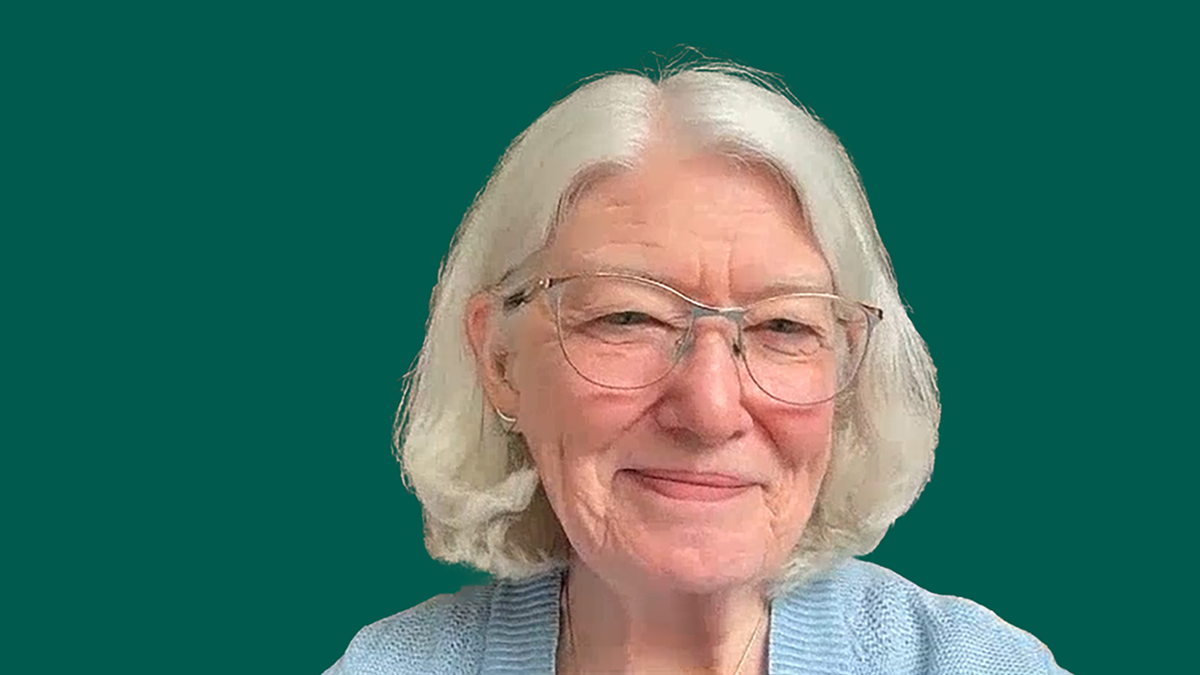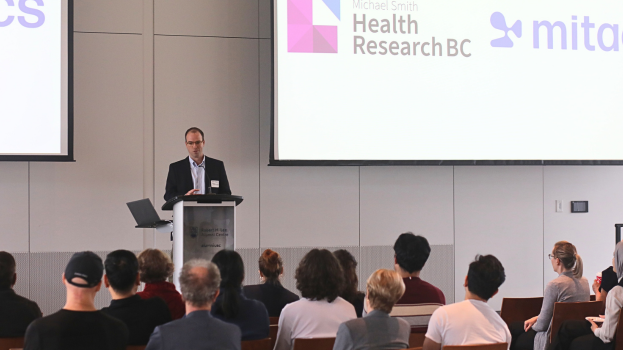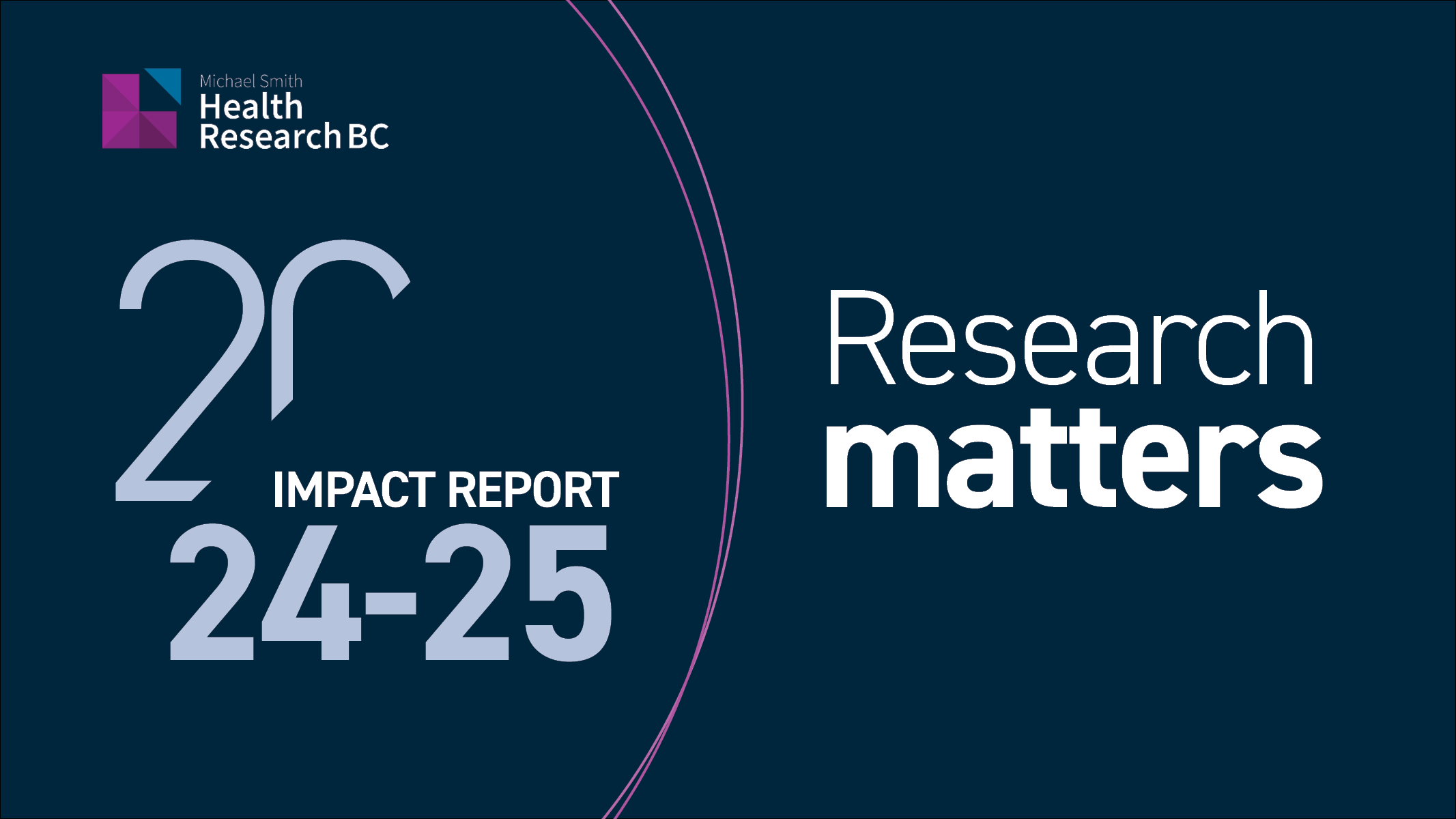Dr. Martha MacLeod shares how patients changed her journey
8 August 2024

This spring, we caught up with Martha MacLeod, Professor Emeritus at the University of Northern British Columbia. Martha is a leader in patient-oriented research. We reached her in Prince George.
Q: Can you share a little about yourself and your work?
I’m recently retired from the University of Northern British Columbia (UNBC) in Prince George. I’m a nurse and I have a background in adult education and community development.
I look at how people learn in the midst of everyday experience and how organizations help or hinder that. I’m in northern BC, so I’m really engaged in rural health.
My methodological area is hermeneutics. It’s a qualitative approach that looks at interpreting how people are and move in the world.
Q: How did you get interested in patient-oriented research?
I’ve done a lot of partnered research with Northern Health, largely with nurses and with healthcare providers and organization managers.
When Canada’s Strategy for Patient-Oriented Research (SPOR) launched, I was in a position of the Northern Health – UNBC Knowledge Mobilization Research Chair.
I had done some patient and community-oriented work on hermeneutics, and it was really an opportunity then to work with Drs. Linda Li and Bev Holmes on the methodological aspect of it.
They saw the opportunity for me to lead a group in a methodological approach to bringing hermeneutics into implementation. This also built on the fact that I had been one of the key people in developing the northern centre of the BC SUPPORT Unit.
Q: How did the BC SUPPORT Unit influence your journey?
The BC SUPPORT Unit gave an opportunity in northern BC for a focus more directly on patient-oriented research – that focus hadn’t been fully there.
We did a lot of partnered research, and there was an openness to engage not only patients, but also people who engaged in the health-care system.
One of the things that the BC SUPPORT Unit supported was taking a broader understanding of research and patients. That allowed us to really broaden our capacity building in the north and deepen our understanding of partnered research with people experiencing various health issues within the healthcare system.
Q: How many people did your work in patient-oriented research involve?
Our method project was on the hermeneutic approach to implementation. This approach required people who could engage in philosophical discussions, because that’s indeed what we were doing.
We started with one patient who took on the patient role in the in the team. He gave us some really important insights on vulnerability.
This patient partner influenced others to take on their own research with patients.
This included researchers on that team, some from BC and Ontario. It also influenced practitioners on our team, a physician and nurses. They’ve gone on to some clinical research, and they’re involving patients more directly while drawing on this experience.
The SPOR influence has broadened people’s understanding about the users of the knowledge, who the knowledge is going to benefit.
Q: Do you feel like there’s been a cultural shift in the broader research community towards SPOR?
I think it’s coming. I don’t think it’s quite there yet.
Now, one of the reasons for that is that clinical research was the first major focus for patient-oriented research. I think health services and community and population, public health researchers are much more used to working in partnership. Therefore, adding patients as partners in that type of research is easier to do.
Clinical researchers have often been trained in different ways, and it’s not quite as easy to get their heads around how patients might be involved.
I see it coming, and I think it’s going to be another decade before it becomes taken for granted.
Q: What surprised you most about working with people with lived and living experience?
When you put a research team together, you put together skills that you need and people with background and knowledge that you need.
That’s exactly the same with the patients.
What I learned, and this is what the patients taught us, was that we are not just patients. We are people with careers. We are people with life experiences. We are people with areas of expertise that research teams need. And by the way, we’re patients. I think that’s a key piece that’s going to keep patient-oriented research moving forward differently.
Q: What is the one thing you’d want people reading this story to know?
Learning. You can always learn.
There is a great deal of mutual learning that then ends up contributing to mutual capacity building, which includes contributing to better research over time.
Listen to part of our conversation
Martha MacLeod, PhD, RN is Professor Emeritus at the University of Northern British Columbia. She is recognized provincially, nationally and internationally for her leadership and contributions to the fields of nursing practice, knowledge mobilization, rural health and nursing education. Her outstanding contributions include developing the BC SUPPORT Unit Northern Centre.
The BC SUPPORT Unit is a provincial initiative that moves evidence developed with patients and communities into practice. We provide services to researchers, patients, policy makers, clinicians and health system leaders.
The BC SUPPORT Unit, Northern Centre is co-led by the University of Northern British Columbia Health Research Institute and Northern Health.
This story is the first in a series of conversations with BC leaders in patient-oriented research methods. Learn about this work.





